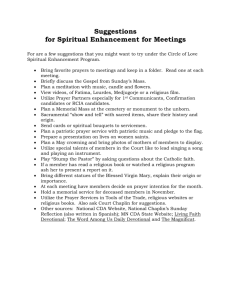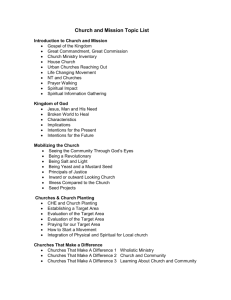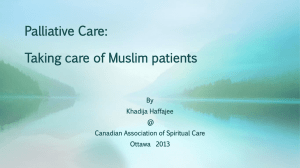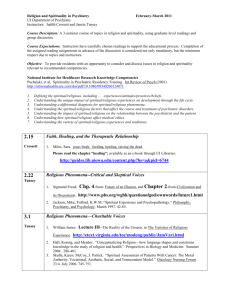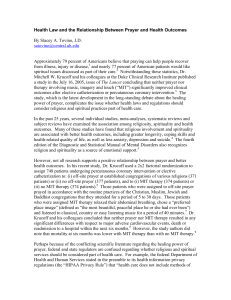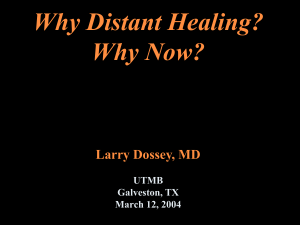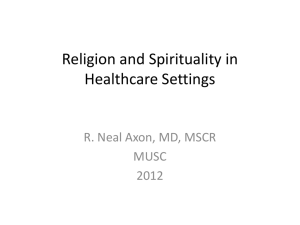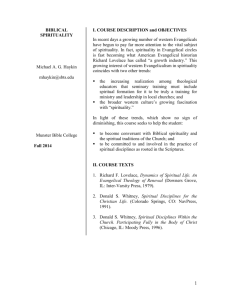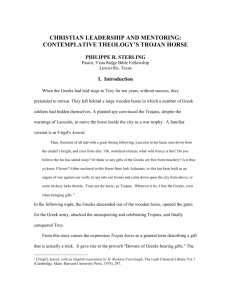Justice, Spiritual Practice and Energizing the Church
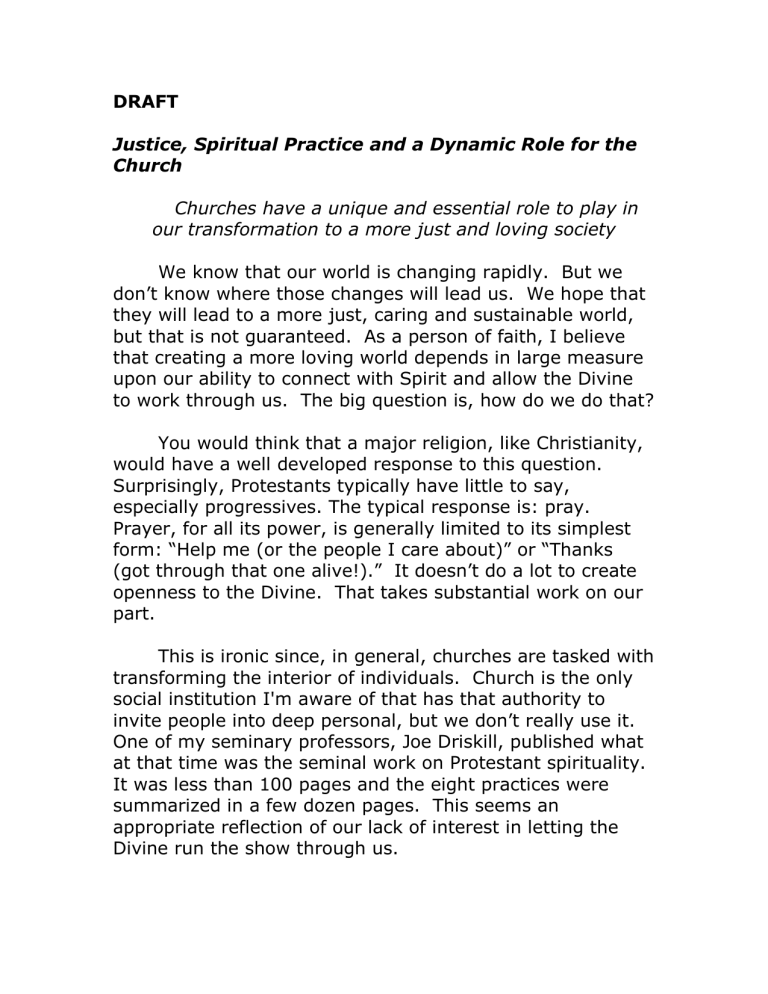
DRAFT
Justice, Spiritual Practice and a Dynamic Role for the
Church
Churches have a unique and essential role to play in our transformation to a more just and loving society
We know that our world is changing rapidly. But we don’t know where those changes will lead us. We hope that they will lead to a more just, caring and sustainable world, but that is not guaranteed. As a person of faith, I believe that creating a more loving world depends in large measure upon our ability to connect with Spirit and allow the Divine to work through us. The big question is, how do we do that?
You would think that a major religion, like Christianity, would have a well developed response to this question.
Surprisingly, Protestants typically have little to say, especially progressives. The typical response is: pray.
Prayer, for all its power, is generally limited to its simplest form: “Help me (or the people I care about)” or “Thanks
(got through that one alive!).” It doesn’t do a lot to create openness to the Divine. That takes substantial work on our part.
This is ironic since, in general, churches are tasked with transforming the interior of individuals. Church is the only social institution I'm aware of that has that authority to invite people into deep personal, but we don’t really use it.
One of my seminary professors, Joe Driskill, published what at that time was the seminal work on Protestant spirituality.
It was less than 100 pages and the eight practices were summarized in a few dozen pages. This seems an appropriate reflection of our lack of interest in letting the
Divine run the show through us.
Many folks today call themselves “spiritual but not religious” and search our culture for spiritual sustenance.
During seminary the national leadership of the UCC held a workshop for new seminarians. A Native American pastor
(one of the presidents of the UCC) told the story of a young man who came to him. The young man asked if the pastor could direct him to where he could develop spiritually. The pastor responded, “how about church?” The young man’s response was telling: “What do churches have to do with spirituality?”
Perhaps it is because progressive Protestants are so allergic to anything that smacks of traditional church, especially the Roman Catholic Church. We shy away from that non-rational spiritual stuff. The growing population of
“spiritual but not religious” is a direct measure of our failure to offer a spirituality appropriate for our culture.
It seems to me that if we are to pursue our historic passion for justice, be effective in the world, and reenergize our churches, we need a deep spiritual practice without all the baggage of church. Many look to the East for these practices, like meditation. But there is a Western practice that is much closer to home. We’ve been doing it in my church for nine years. We call it Transformational Prayer.
Transformational Prayer, considered as a spiritual practice, assumes that “the kingdom of God is within” and that our job is to uncover it. In the tradition of the ancient spiritual practice called Inquiry, Trans Prayer leads us into the invisible beliefs and assumptions that often rule our lives and keep us separate from God. It then dives into to those beliefs and assumptions to allow them to change.
How is this practice connected with our passion for justice?
Justice is difficult. Not only must we contend with entrenched powers and unfair economic and political structures, we can readily become our own worst enemy.
Justice requires creativity and demands that we open to possibilities outside our comfort zone. Justice often requires that we ourselves change. But change and discomfort run right up against our need for safety and security and we find ourselves stuck: we want change but we fear that it might make us worse off.
It is a great irony that we really don’t know if change will make us worse off or not. Instead, we assume that change will make us worse off based on beliefs that have never been examined. Often, these assumptions were formed before we could even talk.
Our culture, for example, tells us that there isn’t enough to go around and we must each strive for ourselves.
It says that we must get our own before someone else gets it first. But is this actually true? Inquiry, in general, and
Trans Prayer in particular, allow us to explore such questions in safety and listen for possibilities from deep within. It opens the door to the real possibility of “thy will, not mine.”
As such it is at the core of Christian spirituality.
Churches can recapture a leadership role in our society through their commitment to justice backed by a powerful spiritual practice that connects us deeply with the wisdom and compassion within. A small group of us (from inside and outside the church) are exploring Trans Prayer can be made available to other churches and bolster their commitment to Justice.


